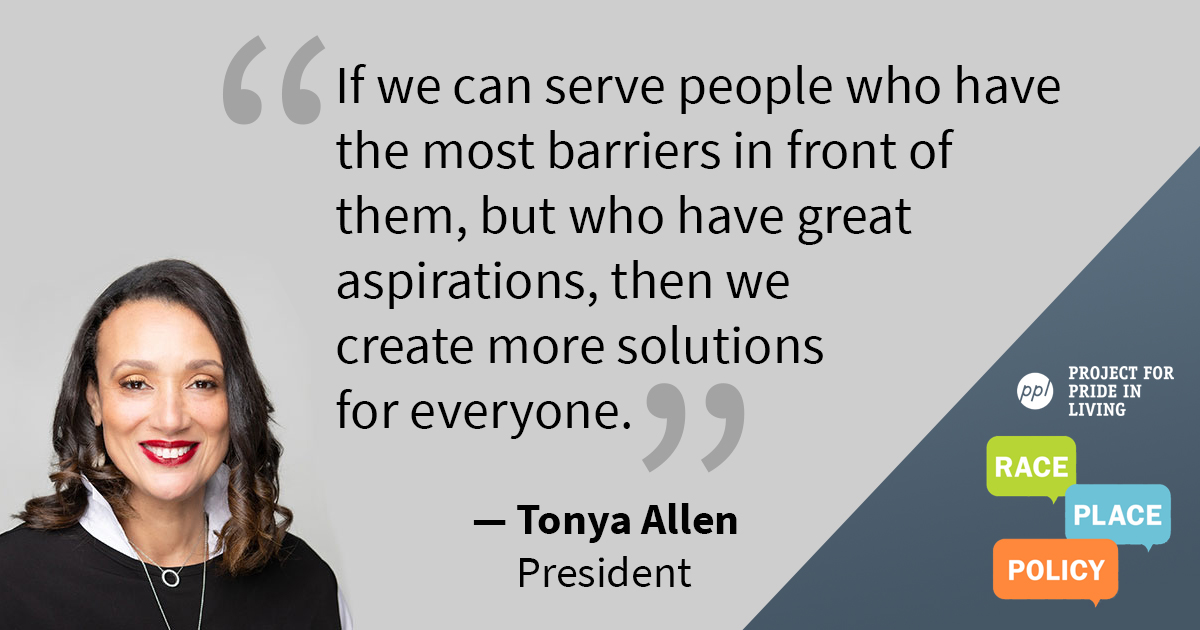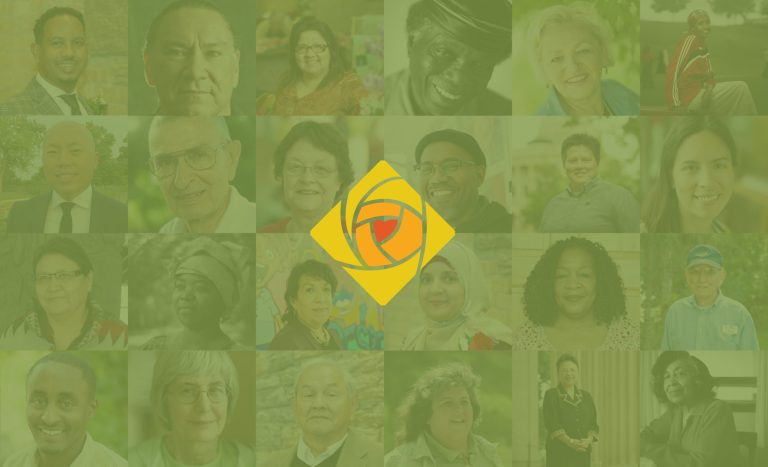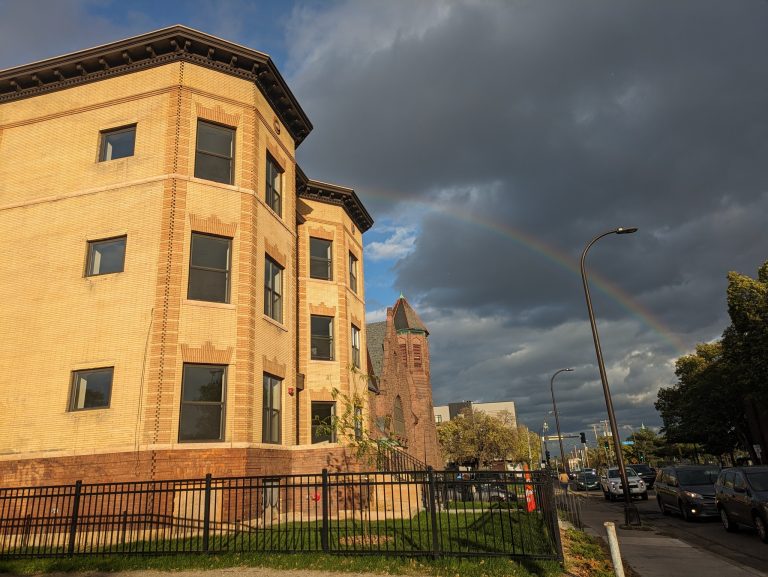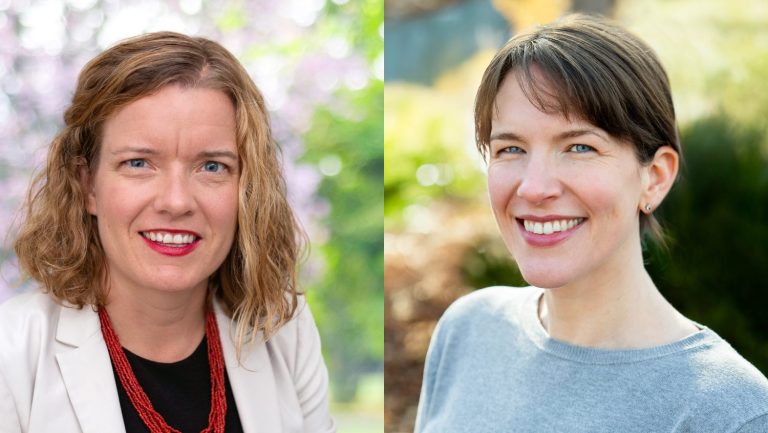
McKnight Foundation president Tonya Allen spoke to Paul Williams, CEO of Project for Pride in Living, on his Race Place Policy podcast. She shared her personal story, as well as views on what it takes to rebuild community and some of the driving forces behind the GroundBreak Coalition.
HIGHLIGHTS
1. Foundations can be more than grantmakers
As a nonprofit leader, your goal is to solve the problem. If you’re mission oriented, you’re going to figure that out, even if it means partnering with different people, doing things that feel uncomfortable to you, growing new muscles. Philanthropic organizations often think they’re not the ones doing the work or making change. But we, too, are part of an ecosystem, and we have to recognize ourselves as a part of that whole. We sometimes have to shift and change and move.
2. We need to change the odds, not beat them
We often talk about people beating the odds, but we rarely talk about people’s aspirations. Our mantra has to be: We’re not going to beat the odds, we’re going to change the odds. We have to create systems where everybody who comes out of them, regardless of their family circumstances and the hurdles they face, can succeed. If we can change the way that we think about their success, not as an anomaly but as a given, then that actually shifts the way we work.
3. Our region is changing the world
We have gone through a lot of tragedy as a region, and we don’t yet have a full narrative about ourselves in this moment. We are a place where Philando and Daunte and Jamar and George Floyd were killed, and we are also the place that ignited a movement across the world. So why are we leaning into the part that is really negative about us instead of the story where we’re igniters? We are the people who changed the world, and we’re going to continue to change the world.
4. Building equity is about deconstruction and reconstruction
Equity work is about deconstruction and reconstruction. When we think about equity, we say, “Oh that sounds so wonderful, isn’t it going to be great to get to equity.” Yes it is, but we have to get through deconstruction, which is really messy, hard, and dangerous work, and then we reconstruct into the institutions and places that we want to be. Part of that is what drove this notion of the GroundBreak Coalition.
5. We can improve the entire region for everyone with GroundBreak
GroundBreak Coalition is using a targeted universalism strategy. If we can serve people who have the most barriers in front of them, but who have great aspirations, then we create more solutions for everyone. If we can figure out how to serve Black people who want to be homeowners, who have been denied and sometimes discriminated against, then we make the system better for everybody.
6. Innovation comes from blending cooperation and competition
With GroundBreak, we are creating an environment of “coopetition” where financial institutions are competing, but they’re cooperating. They’re sharing what they’re doing, which forces other people to move and shift and shape in a different way. Many of these financial institutions that have a foothold in the Twin Cities have models and innovations all across the country. We’ve been saying: bring them here, we want them all. We want every single innovation here.


